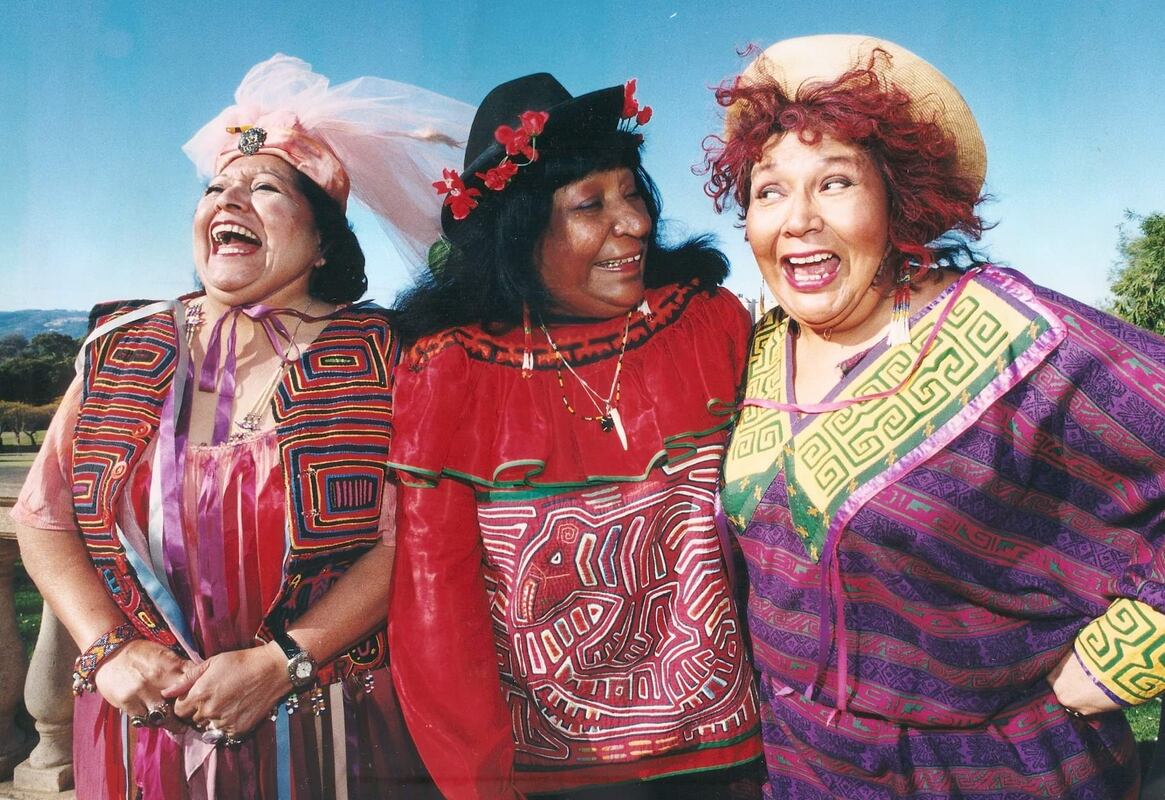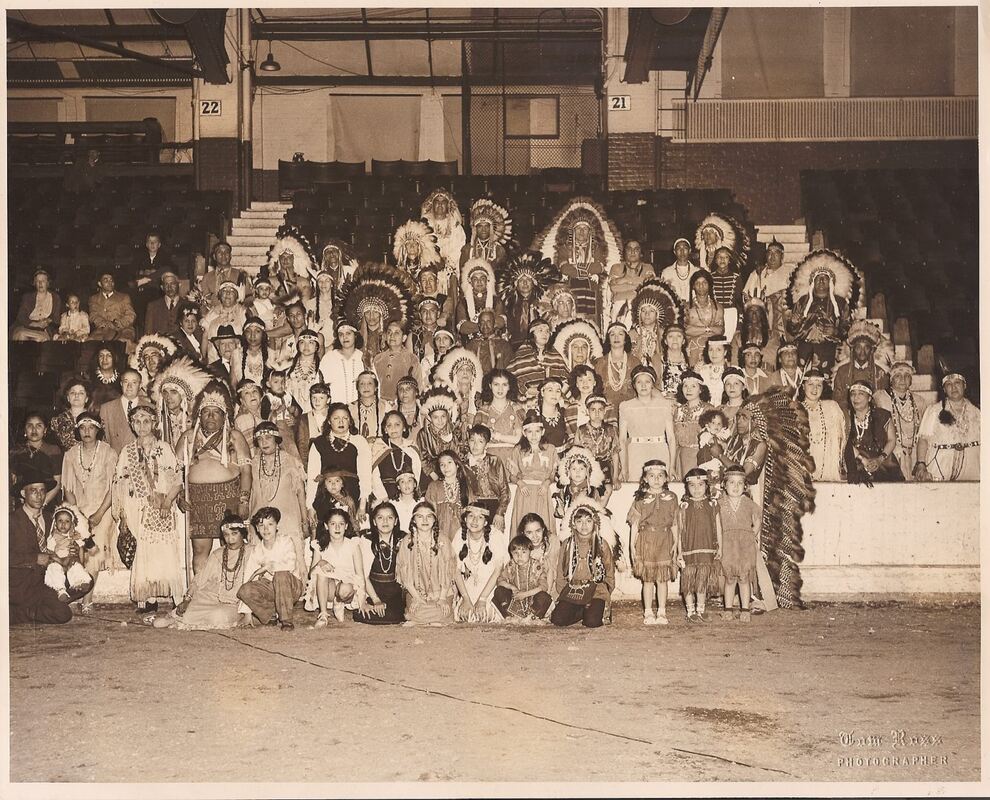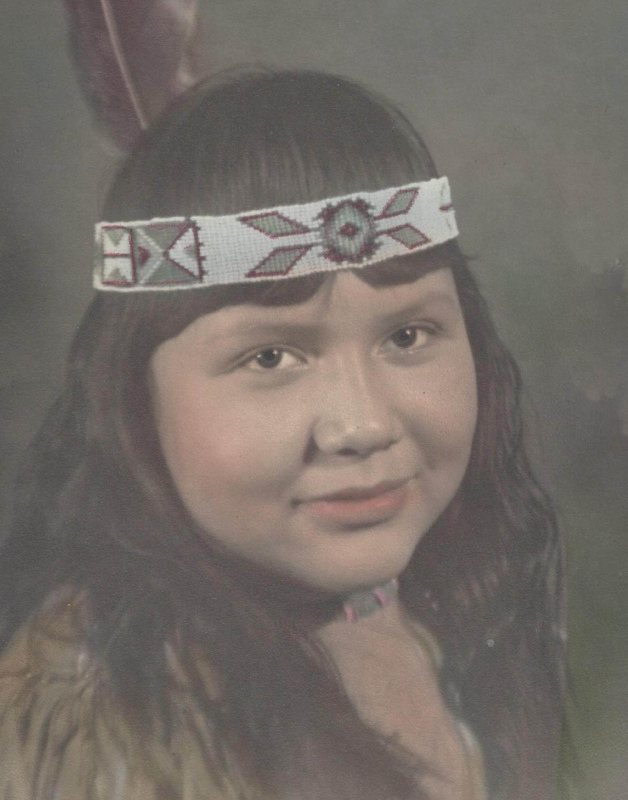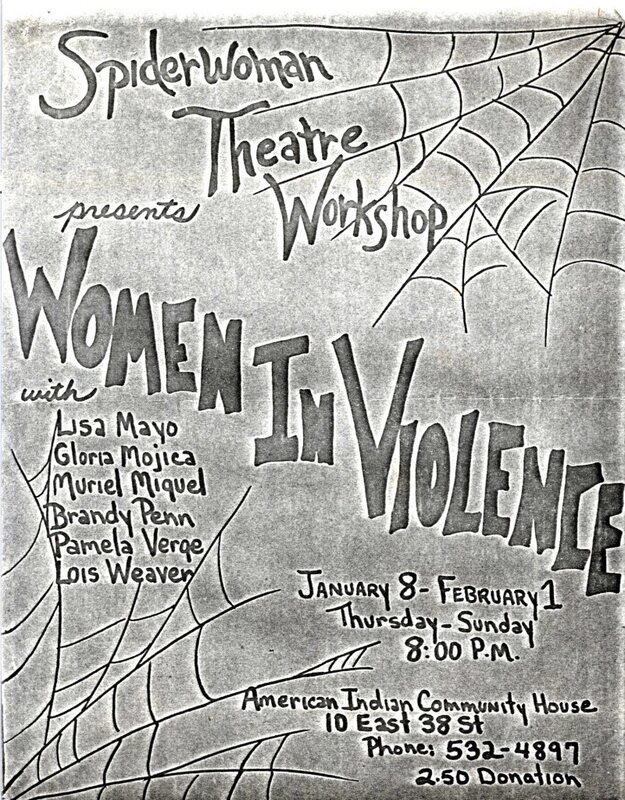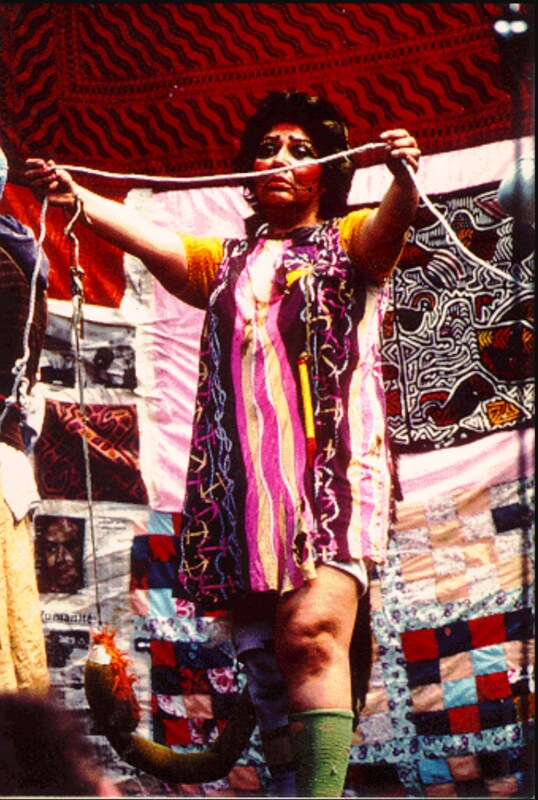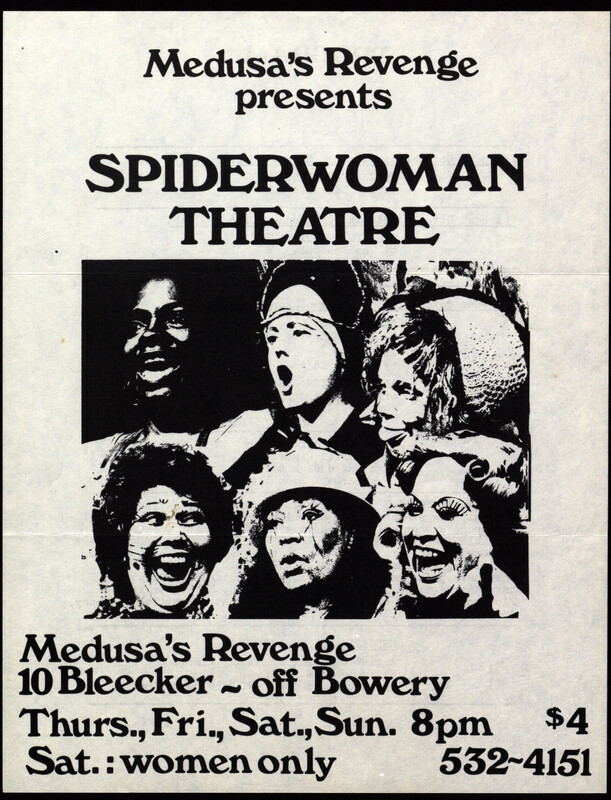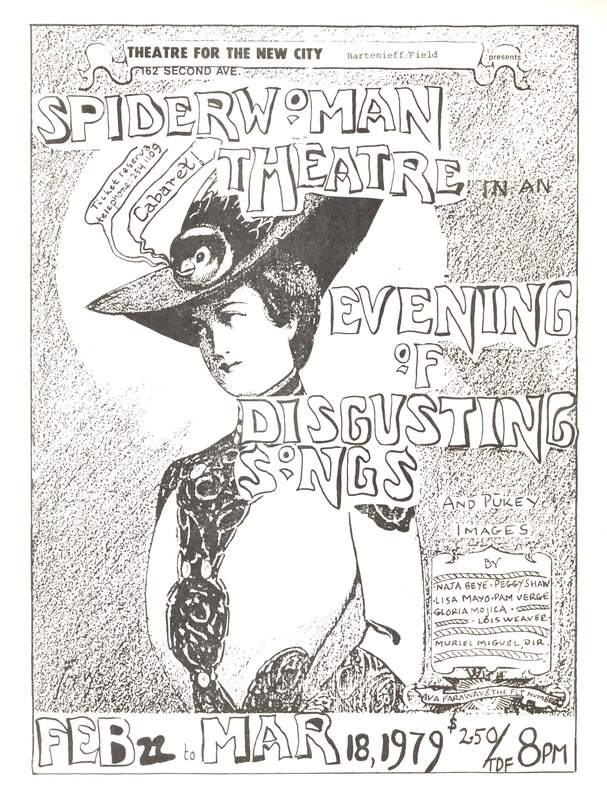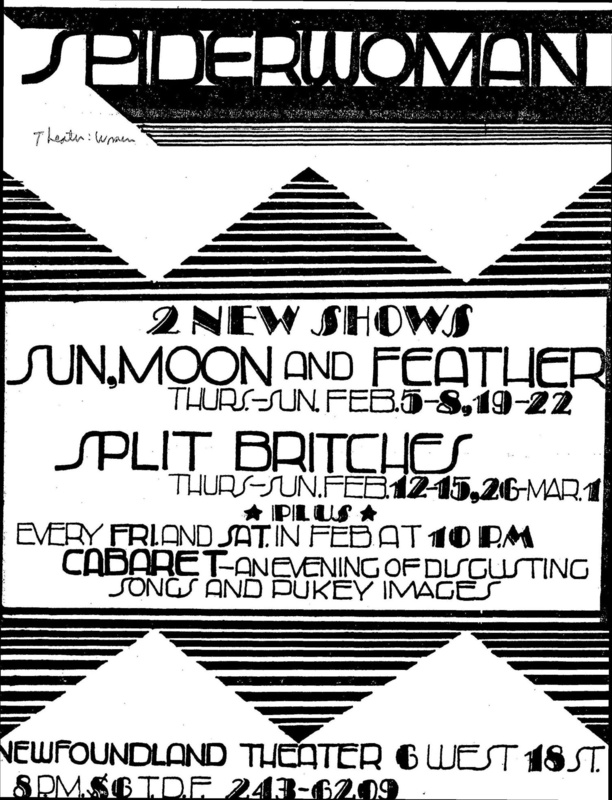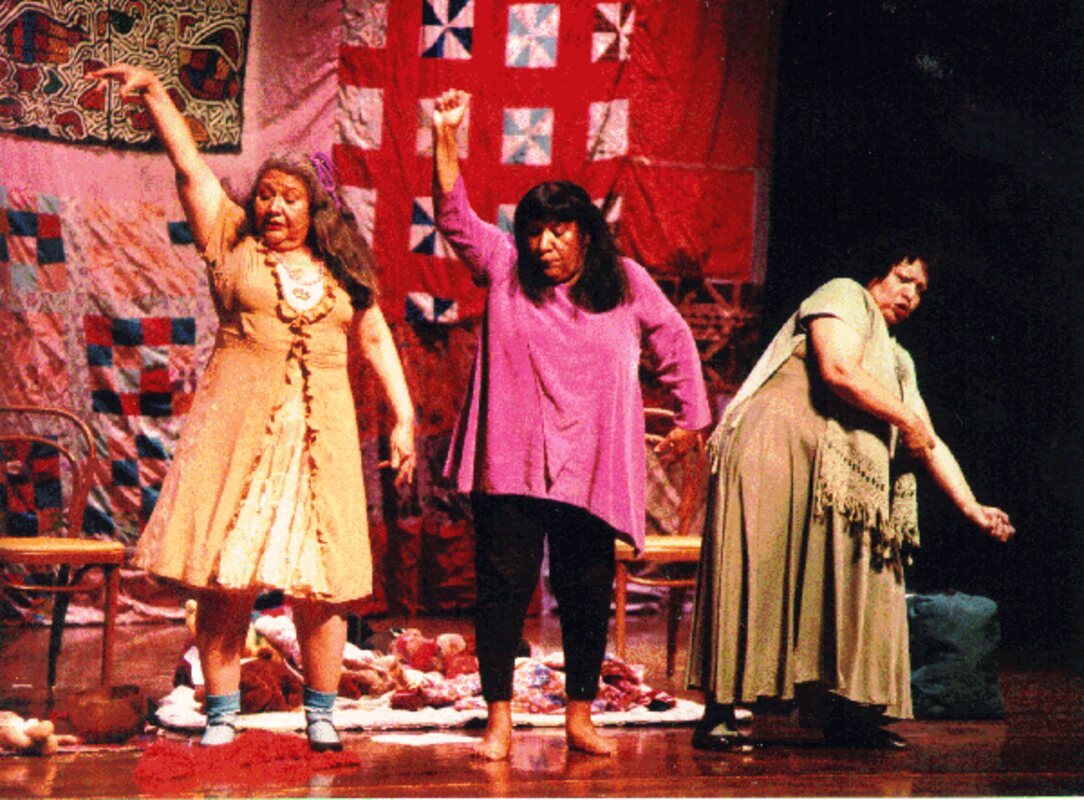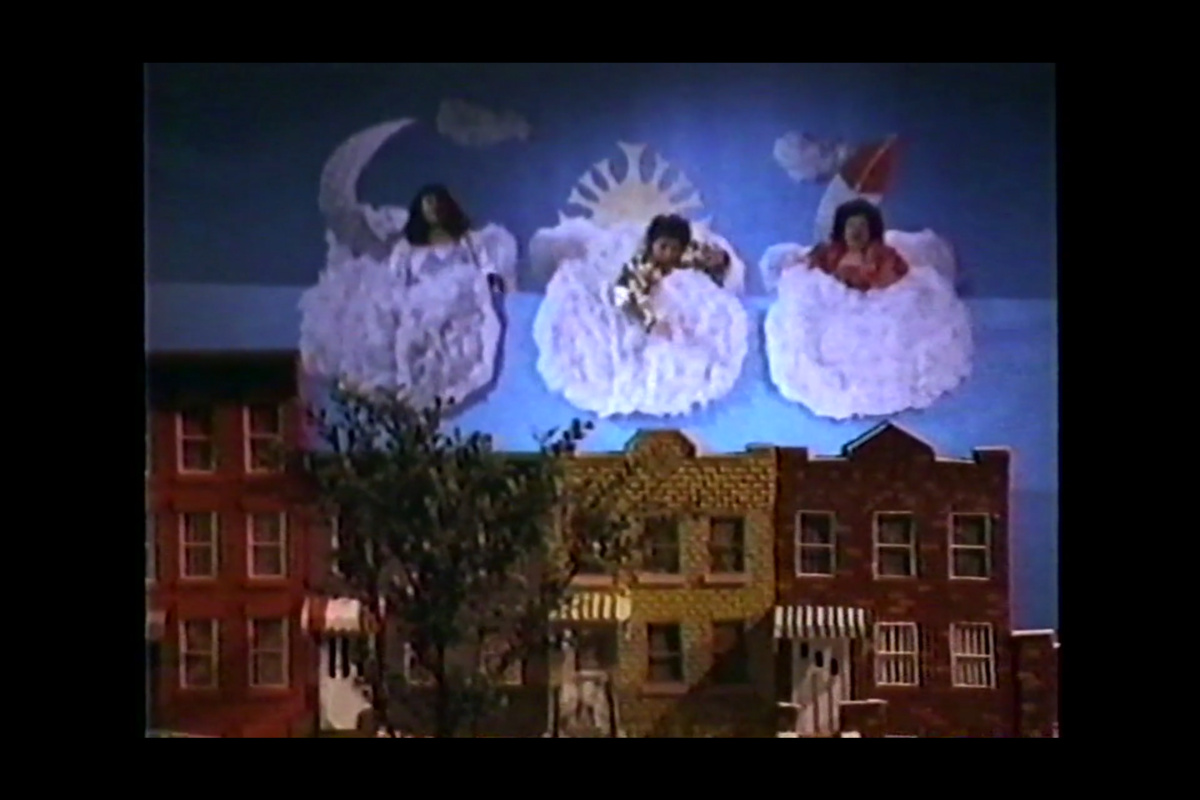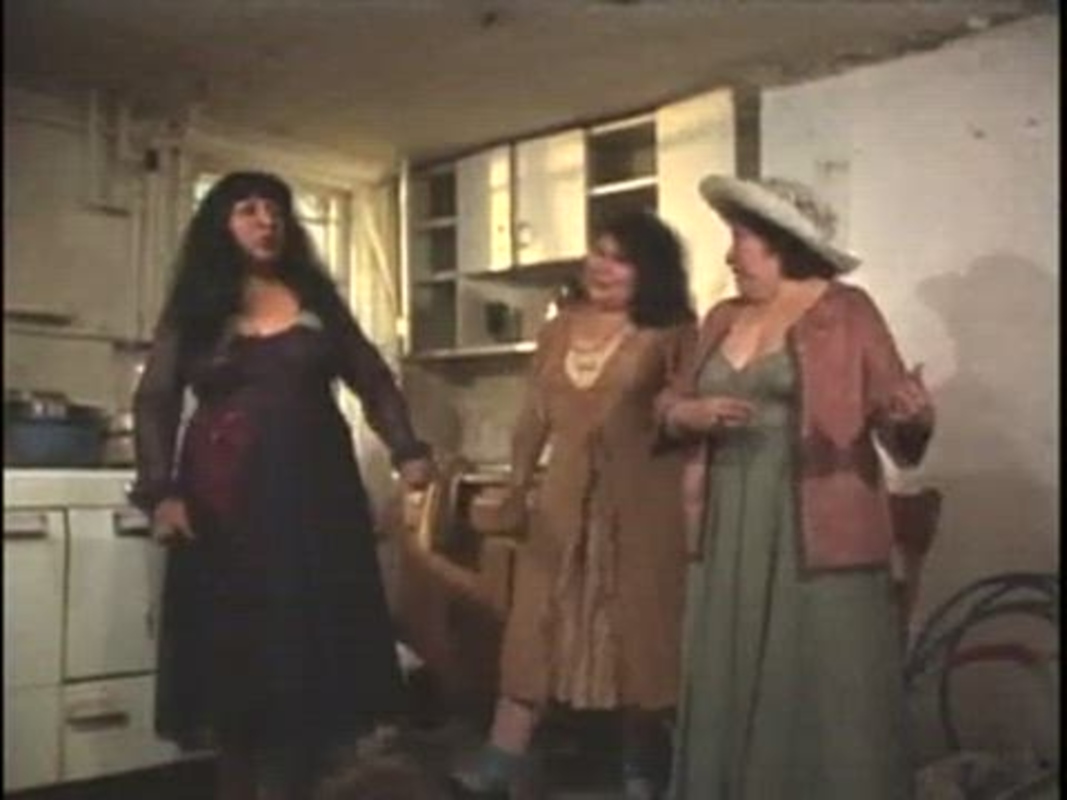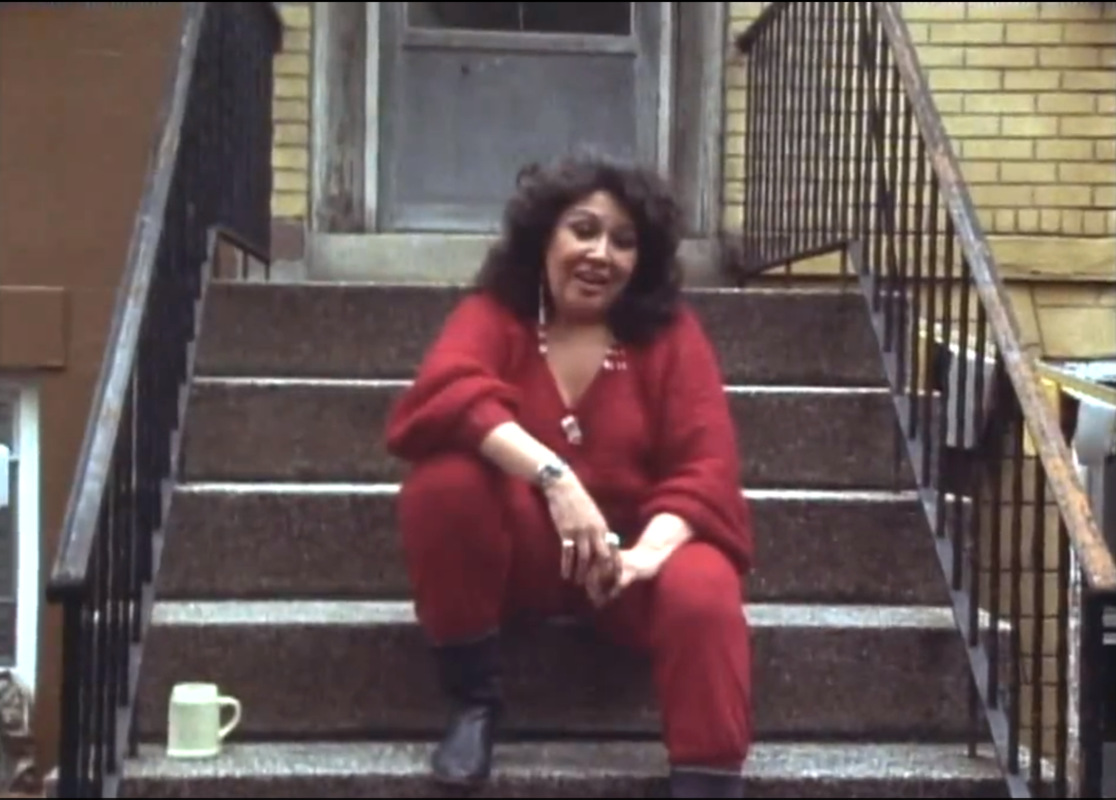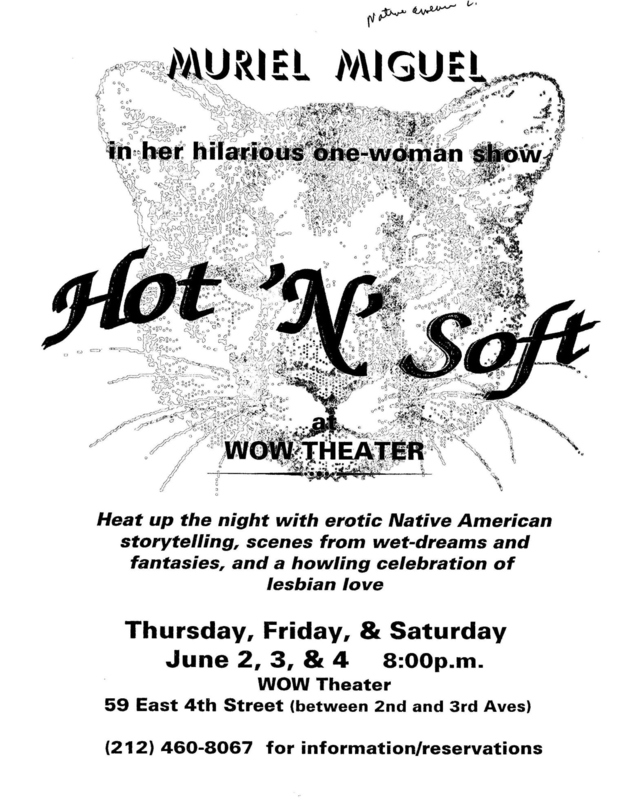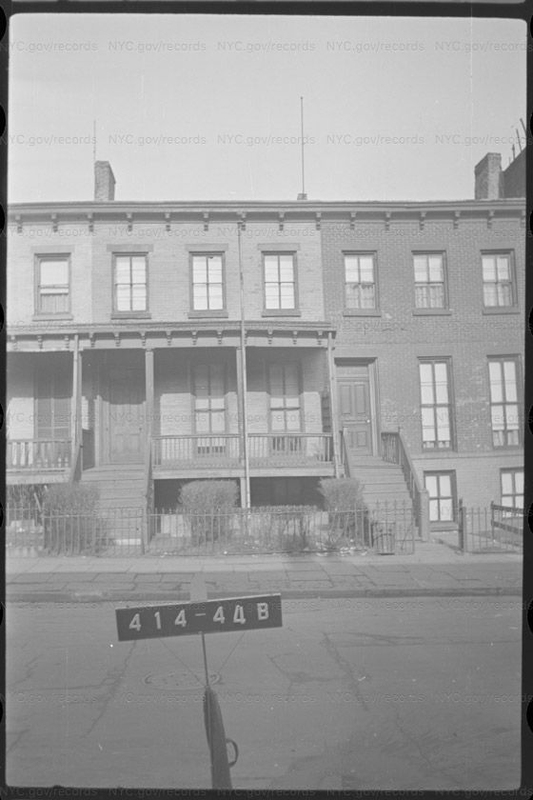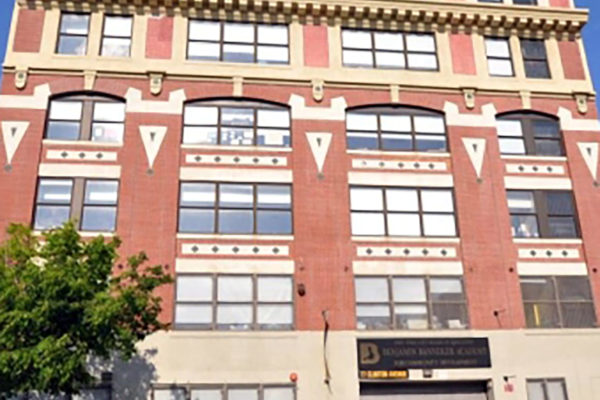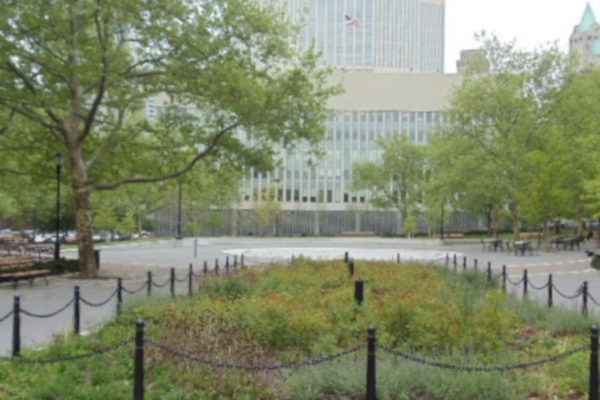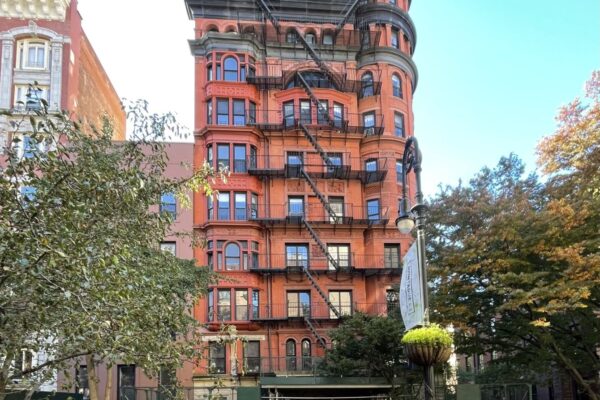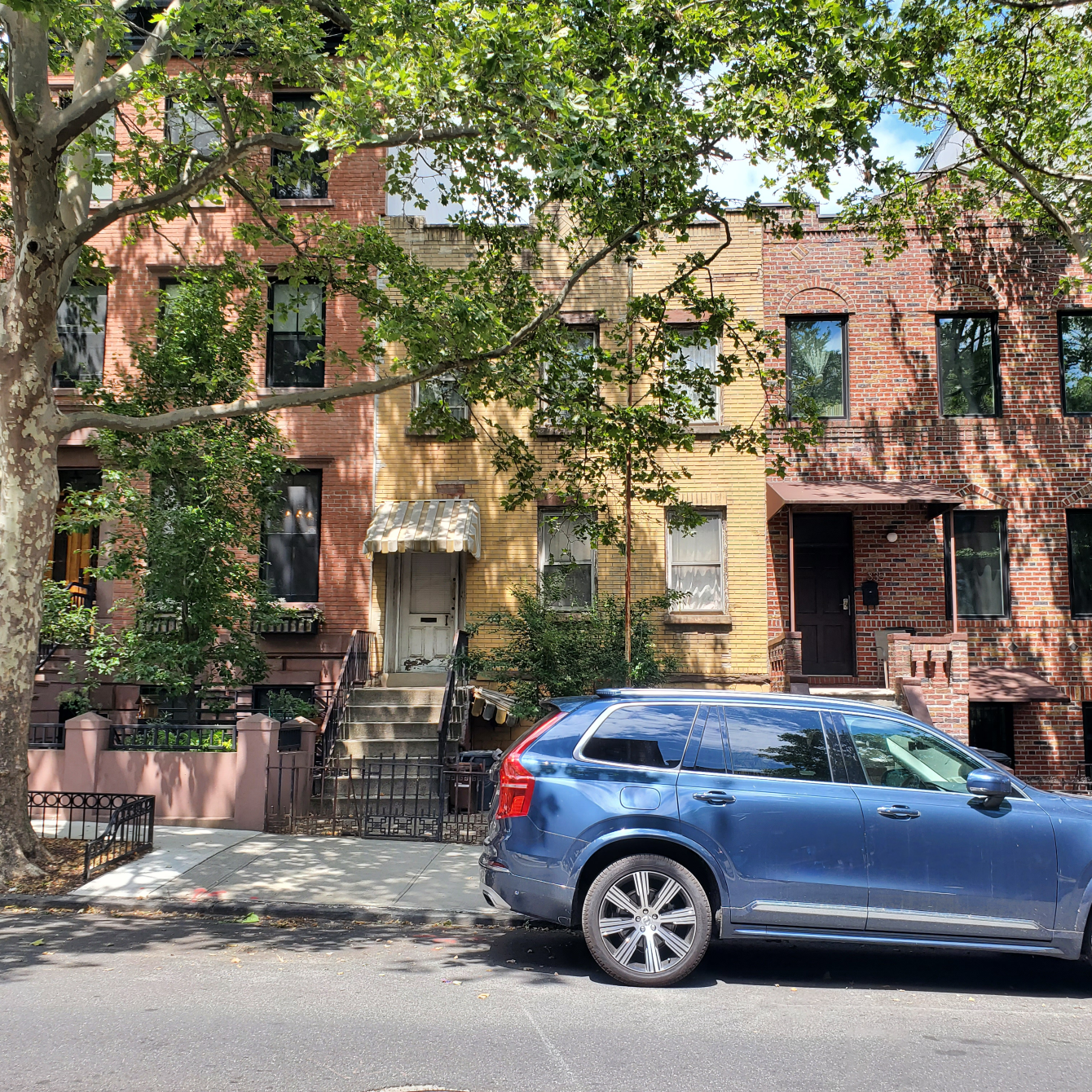
Muriel Miguel Residence & Spiderwoman Theater Headquarters
also known as Spiderwoman Theatre Workshop
overview
Two-Spirit theater director, choreographer, actress, and educator Muriel Miguel was born and has lived much of her adult life in this Brooklyn rowhouse, which has served as the headquarters for Spiderwoman Theater for most of the years since its founding in 1976.
Combining Indigenous oral traditions with her experience in modern dance, avant-garde theater, and consciousness-raising, Miguel has confronted racist and sexist stereotypes, cultural appropriation and commodification, weight and age stigma, gender-based violence, classism, and taboos among lesbians.
On the Map
VIEW The Full MapHistory
Muriel Miguel (b. 1937; Tribal nations: Kuna/Rappahannock) was delivered by her midwife grandmother on the floor of this rowhouse at 333 Degraw Street, which Miguel’s grandparents began renting around 1914 despite racist neighbors’ petitions against their tenancy. Miguel grew up at her parents’ nearby 50 1st Place apartment, but her sisters, Lisa Mayo (1925-2013) and Gloria Miguel (b. 1926), raised her due to their father’s alcoholism and mother’s withdrawal.
Miguel’s passion for storytelling took root at her grandparents’ house, which was an unofficial inn and gathering place for Indigenous performers visiting New York in the 1940s. Growing up, Miguel sat under the large kitchen table as family, neighbors, and visitors shared stories, songs, and dances. Motivated by these exchanges, 12-year-old Miguel formed the Little Eagles (known as Thunderbird American Indian Dancers since 1963) at Cuyler Presbyterian Church, 358-360 Pacific Street, with multiple Indigenous peers, including neighbors Josephine and Louis Mofsie. Challenging their schoolteacher’s claim that Indigenous culture was dead, the Little Eagles “were determined to learn and preserve the songs and dances of…the great diversity of Tribal groups living in” New York at a time when the United States restricted their cultural expression.
In the 1960s, Miguel pursued modern dance with Alwin Nikolais and Murray Louis at the Henry Street Settlement Playhouse and avant-garde theater with Joseph Chaikin’s Open Theater. Dissatisfied with being relegated to demeaning, stereotyped roles in commercial theater, Miguel formed Womanspace with Carol Grosberg and Laura Foner in 1972. Although they only produced one play, which premiered to an all-woman audience at Washington Square United Methodist Church, Womanspace solidified Miguel’s commitment to feminist theater, leading her, Josephine Mofsie, and Lois Weaver to perform a workshop in 1975. Through this workshop, Miguel pioneered her now-signature “storyweaving” technique, in which multiple stories are interwoven and “organically layered with movement, text, sound, music, and visual images.”
Around 1973, Miguel moved to her grandparents’ former home at 333 Degraw Street, which had been remodeled in the 1950s, when yellow brick veneer was added and the porch and cornice were removed. With the house as its “initial spiritual and legal address,” Spiderwoman Theater was established, taking its name from the weaver in Hopi creation stories. As described in the program for a performance series at Medusa’s Revenge:
Spiderwoman Theater is an exuberant, dissonant, satiric, musical, bigger-than-life, clownish, violent, vulnerable, burlesque, and occasionally pornographic feminist theater ensemble.
In 1976, Brandy Penn, Naja Beye, Pamela Verge, and Miguel’s sisters joined Miguel and Weaver in Women in Violence, which used “the buffoonery of clowns” to “weave…personal stories of violence, fear, anger, and frustration.” They rehearsed in Penn’s Westbeth studio in Greenwich Village, scavenging the halls for artists’ discarded materials to create costumes, then workshopped it at the American Indian Community House’s (AICH) 10 East 38th Street location in Manhattan. Despite some male attendees heckling and leaving in protest, this marked the beginning of Spiderwoman’s long-lasting relationship with AICH.
During Spiderwoman’s 1979 Amsterdam tour, Miguel came out as lesbian and the company met Peggy Shaw of the NYC-based drag troupe Hot Peaches. Shaw joined Spiderwoman in New York and began dating and collaborating with Weaver, ultimately leading to a schism in 1981 after they developed Split Britches (the namesake of their offshoot troupe) and the Miguel sisters developed Sun, Moon, and Feather. Signaling Spiderwoman’s reemergence as an Indigenous troupe centered on the Miguel sisters, this autobiographical play incorporated home movies and stories of racism while growing up poor in Brooklyn, while the 1989 film adaptation added scenes filmed in the Degraw Street house and on a stage set of its exterior.
As Spiderwoman focused on Indigenous themes—critiquing “plastic shamanism” and recounting childhood experiences accompanying their father to medicine shows and Thanksgiving performances—Miguel also explored Two-Spirit themes. Hot’n’Soft (1991), a one-woman show that premiered at the LGBT Community Center’s social for WeWah & BarCheeAmpe, was “a celebration of lesbian sexuality” that used burlesque and humor to tell stories about coming out, her first homosexual encounters, and taboos around hair and aging. Additionally, Miguel collaborated with many Two-Spirits, including Billy Merasty, Gloria May Eshkibok, Nicholson Billey, and brothers René Highway and Tomson Highway. She also co-founded the Shy Woman Singers with Karina Walters and Leota Lone Dog, with whom she performed in the dance troupe Two-Spirited/Thunder People.
Increasingly recognized as an Elder, Miguel became devoted to culture-based theater training. For the Ogitchidag Gikinooamaagad Players, a peer education group led by Sharon Day, Miguel wrote My Grandmother’s Love (1991), weaving together “the stories and dreams of the actors and Indian people living with AIDS.” Also, she and Steve Elm helped the AICH Youth Council explore issues concerning urban Indigenous youth in Indian Givers (1993).
Now a multi-generational troupe, Spiderwoman is still headquartered at 333 Degraw Street, where Miguel lives with her wife, stage manager Deborah Ratelle.
Entry by Ethan Brown, project consultant (November 2023), with thanks to Muriel Miguel and Spiderwoman Theater for providing preliminary text.
NOTE: Names above in bold indicate LGBT people.
Building Information
- Architect or Builder: Thomas S. Purdy
- Year Built: c. 1851
Sources
Ann Haugo, “Weaving a legacy: an interview with Muriel Miguel of the Spiderwoman Theater,” The Color of Theater: Race, Culture, and Contemporary Performance (London and New York: Continuum, 2002), 218-234.
Barbara Seyda with Diana Herrera, Women in Love: Portraits of Lesbian Mothers & Their Families (Boston: Bulfinch Press, 1998), bit.ly/3sKCqOT.
Charlotte Canning, Feminist Theatres in the USA: Staging Women’s Experience (London and New York: Routledge, 1996).
Deborah Ratelle, email with Ethan Brown, September 2023.
Jill L. Carter, Repairing the Web: Spiderwoman’s Children Staging the New Human Being (Doctoral dissertation, University of Toronto, 2010).
Muriel Miguel, interview with Jo Reed, National Endowment for the Arts (accessed September 8, 2023) bit.ly/480VUPv.
Muriel Miguel, “I’m a Vital Woman and There’s Beauty in That,” Lesbians at Midlife: The Creative Transition, an Anthology (Spinsters Book Company, 1991), 202-205.
Saki Knafo, “Muriel Miguel and the Native American Bohemia in Brownstone Brooklyn,” The New York Times, March 4, 2022, nyti.ms/3sode0r.
“Thunderbirds: 59 years..NY’s oldest Native American Dance Company,” Thunderbird American Indian Dancers (accessed October 2, 2023), bit.ly/46rJMpn.
Tom Pearson, “Legacy and the Persistence of Memory: A Conversation with Muriel Miguel,” Ransom Poet (accessed September 20, 2023), bit.ly/3LDB0fO.
Spiderwoman Theater, Program for Medusa’s Revenge, 1978, Medusa’s Revenge folder, Lesbian Herstory Archives, via Archives of Sexuality and Gender. [source of pull quote]
Do you have more information about this site?
This project is enriched by your participation! Do you have your own images of this site? Or a story to share? Would you like to suggest a different historic site?
